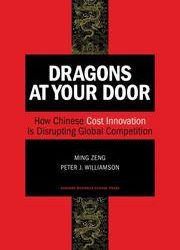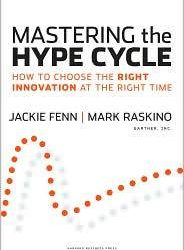Dragons at Your Door

The book ‘Dragons at Your Door’ by Ming Zeng and Peter J. Williamson gives a surprising, fascinating insight into the ways in which Chinese companies, innovatively and successfully, compete in the world market. The two authors argue that the reader should forget the notion that the rise of Chinese competitors is merely flooding the world market with cheap, low-quality imitations.
Chinese companies disrupt the worldwide competition through cost innovation in three stages. It starts with providing high tech at low costs. After this, Chinese companies offer customers an unrivalled range of products in a, until recently, standardised market sector of mass produce. Finally, the Chinese companies use their low costs to offer special products at dramatically low prices, resulting in a volume business.
A telling example is the company China International Marine Containers Group (CIMC), which uses this three-stage strategy to assertively conquer the global market of container production and manufactures refrigerated containers, tank containers and auto-folding containers. The secret of CIMC lies in looking for the weakness in the defence of the competition and in lowering costs through scale-related benefits and innovative applications of new materials to replace expensive ones. If the, often western, competition retreats to a higher segment, then they lose out to the ingenious Chinese expansion strategy. Outsourcing of activities by western companies to streamline their value chains does lead to higher profitability in the short term, but simultaneously invites the Chinese ‘Dragons’ in. This Chinese expansion strategy of cost innovation is less effective in markets where there is no dominant technology as of yet, and it does not seem to work in the industry of fast-moving consumer goods with complex supply chains and sophisticated marketing campaigns.
The book gives a clear overview of the branches in which the Dragons’ strategy has already been applied, or are yet to follow. Luckily, the book also provides the answer to the question of how western companies could defend themselves against the strategies of the Dragons, namely by cleverly collaborating with them. Highly recommended for the international corporate strategist.









